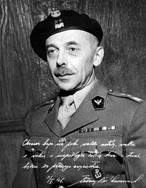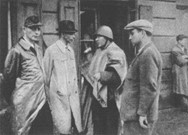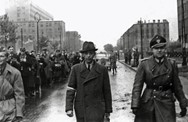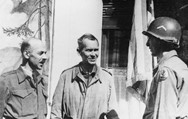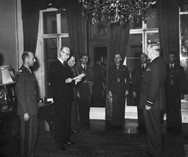General Tadeusz “Bór” Komorowski
Born 1st June 1895, near Lwòw and died 24th August 1966, Buckley, England.
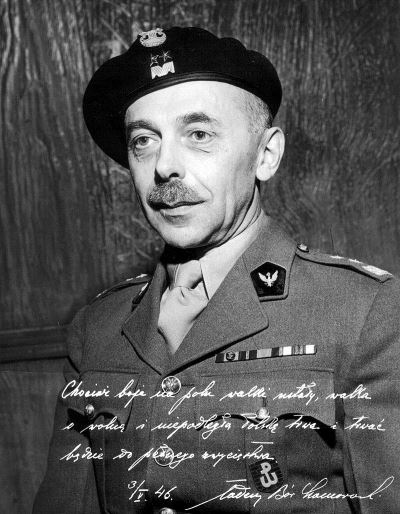
General Tadeusz Komorowski , better known by the name Bór-Komorowski (after one of his wartime code-names: Bór - "The Forest"). He was appointed commander in chief a day before the capitulation of the Warsaw Uprising and following World War II, Prime Minister of the Polish government-in-exile in London.
Komorowski was born in Chorobròw near Lwów, in Eastern Galicia, part of the Austrian partition of Poland, to Mieczysław Marian Komorowski (Korczak Coat of Arms) and his wife Wanda née Zaleska (Prawdzic Coat of Arms). In the First World War he served as an officer in the Austro-Hungarian Army and after the war became an officer in the Polish Army, rising to command the Grudziądz Cavalry School.
After taking part in the fighting against the German invasion of Poland at the beginning of World War II in 1939, Komorowski, with the code-name Bór, helped organize the Polish underground in the Kraków area. In July 1941 he became deputy commander of the Home Army (Armia Krajowa or "AK"), and in March 1943 gained appointment as its commander, with the rank of Brigadier-General.
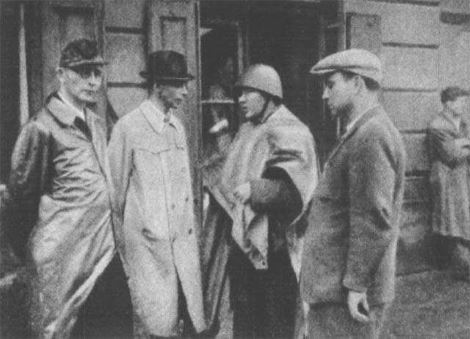
Bór-Komorowski talking with Col. Jan Mazurkiewicz "Radosław" during the Warsaw Uprising.
In mid 1944, as Soviet forces advanced into central Poland, the Polish government-in-exile in London instructed Bór-Komorowski to prepare for an armed uprising in Warsaw. The government-in-exile wished to return to a capital city liberated by Poles not seized by the Soviets and prevent the Communist take-over of Poland which Stalin had clearly set in train.
The Warsaw Uprising began on Komorowski's order on 1 August 1944 and the insurgents of the AK seized control of most of central Warsaw. Elements of the Soviet Army stood only 20 km (12 mi) away but on Joseph Stalin's orders gave no assistance: Stalin described the rising as a "criminal adventure". The British managed to drop some supplies by air but could give no direct assistance. The Germans employed large forces of Waffen-SS and regular troops, plus auxiliary forces made up of Soviet Army deserters, who acted particularly brutally, under the command of Erich von dem Bach.
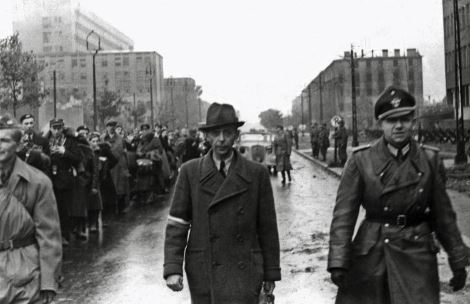
Leading his men into captivity after the Warsaw Uprising, 5th October 1944.
In September 1944, Bór-Komorowski was promoted to General Inspector of the Armed Forces (Polish Commander-in-Chief).After two months of fierce fighting Bór-Komorowski surrendered to the Germans on 2 October, on condition that Germany treat the AK fighters as prisoners-of-war, which they did. Bór - Komorowski went into internment in Germany (at Oflag IV-C). Despite pressure from Germans, he refused to issue orders of surrender to Home Army units in German controlled Poland who continued fighting.
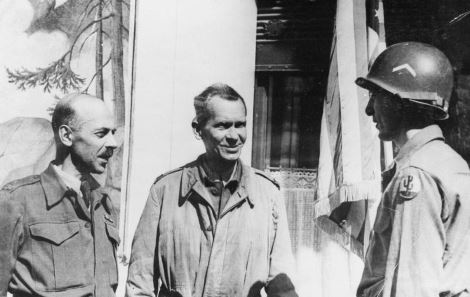
With his deputy General Tadeusz Pełczyński, greeting an American soldier of the US 7th Army after their liberation from the Itter Castle, Innsbruck.
Liberated at the end of the war, he spent the rest of his life in London, where he played an active rôle in Polish émigré circles. From 1947 to 1949 he served as Prime Minister of the Polish government-in-exile, which no longer had diplomatic recognition from most Western European countries. He wrote the story of his experiences in The Secret Army (1950). After the war he was an upholsterer. He died whilst out hunting in Buckley and was buried in Gunnersbury Cemetary in London aged 71.
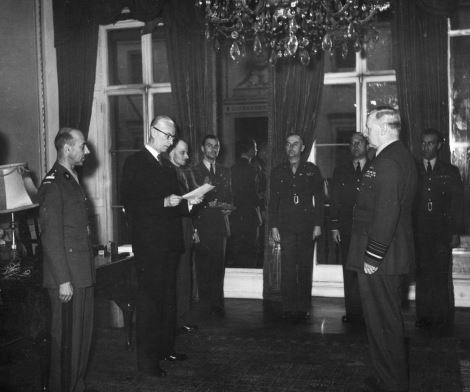
With Prezydent Władysław Raczkiewicz at a ceremony to decorate Air Marshall Arthur 'Bomber' Harris, London 7 June 1945.
